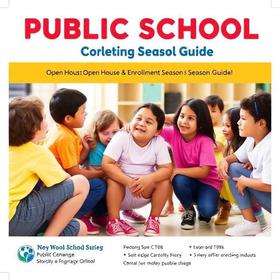Reedsville Middle School ranks in the top 30% of all schools in Wisconsin for overall test scores (math proficiency is top 30%, and reading proficiency is top 50%).
The percentage of students achieving proficiency in math was 50-54% (which was higher than the Wisconsin state average of 43%). The percentage of students achieving proficiency in reading/language arts was 45-49% (which was higher than the Wisconsin state average of 41%).
School Overview
Grades Offered
Grades 5-8
Total Students (19-20)
167 students
Total Classroom Teachers (19-20)
12 teachers
School Rankings
Math Test Scores (% Proficient)
(18-19)50-54%
43%
Reading/Language Arts Test Scores (% Proficient)
(18-19)45-49%
41%
Student-Teacher Ratio
n/a
13:1
American Indian
(19-20)n/a
1%
Asian
(19-20)n/a
4%
Hispanic
(19-20)10%
13%
Black
(19-20)1%
9%
White
(19-20)88%
69%
Hawaiian
(19-20)n/a
n/a
Two or more races
(19-20)1%
4%
Eligible for Free Lunch (19-20)
23%
35%
Eligible for Reduced Lunch (19-20)
4%
5%
School Statewide Testing
School District Name
Source: National Center for Education Statistics (NCES), WI Dept. of Education
Frequently Asked Questions
What percent of students have achieved state testing proficiency in math and reading?
50-54% of students have achieved math proficiency (compared to the 43% WI state average), while 45-49% of students have achieved reading proficiency (compared to the 41% WI state average).
How many students attend Reedsville Middle School?
167 students attend Reedsville Middle School.
What is the racial composition of the student body?
88% of Reedsville Middle School students are White, 10% of students are Hispanic, 1% of students are Black, and 1% of students are Two or more races.
What grades does Reedsville Middle School offer ?
Reedsville Middle School offers enrollment in grades 5-8
What school district is Reedsville Middle School part of?
Reedsville Middle School is part of Reedsville School District.
Recent Articles

Public School Open House & Enrollment Season Guide
A parent-focused guide to the public school open house and enrollment season, with expert questions, timelines, and decision tips.

School Supply Budget 2026: Fees, Books, Tech Costs
School Supply Budget 2026 guide for parents, covering fees, textbooks, technology, and hidden extras to plan ahead.

Education Funding in America (2025 Update)
Comprehensive 2025 update on public school funding in America, new federal and state policies, per-pupil spending, and equity challenges.





